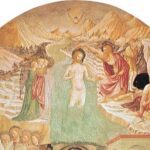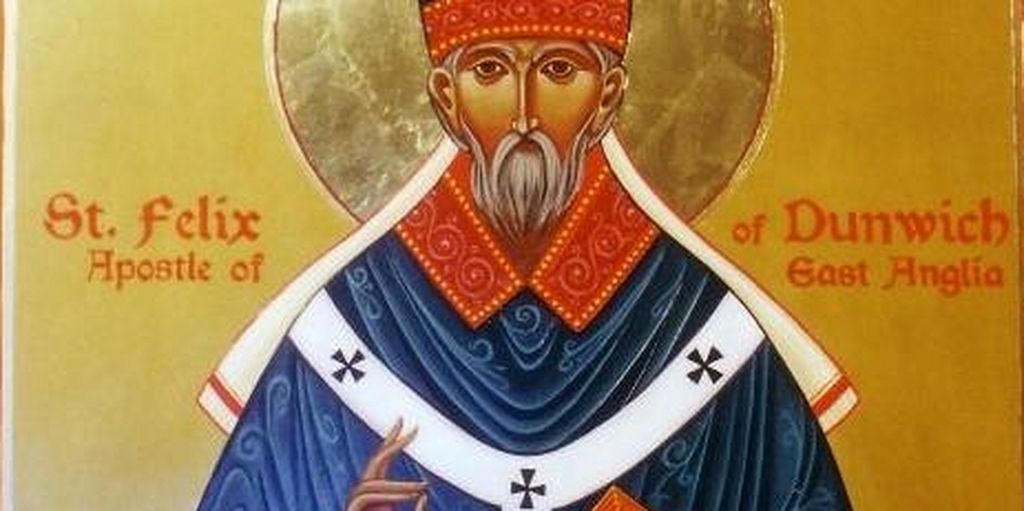St. Felix IV, also known as Pope Felix IV, was an important figure in early Christian history. He served as the pope from 526 to 530 AD during a time when the Church was still establishing its foundations. His papacy is notable for several reasons, including his efforts to promote unity among Christians and his contributions to the development of Christian doctrine. St. Felix IV is often remembered for his role in the theological debates of his time and his efforts to strengthen the Church in a period marked by political instability and religious conflict.
The Early Life of St. Felix IV
 St. Felix Iii
St. Felix IiiDetails about the early life of St. Felix IV are somewhat scarce. It is believed that he was born in Rome, where he likely received a traditional Christian upbringing. This environment would have been influential in shaping his religious beliefs and ambitions. As a young man, Felix IV was deeply committed to his faith and became involved in the Church’s activities. His dedication to God and the community eventually led him to the priesthood, where he began to gain recognition for his piety and leadership abilities.
During his early years, Felix IV would have witnessed the challenges facing the Christian community. The Roman Empire was undergoing significant changes, and the Church was striving to maintain its influence amidst these transformations. This context likely fueled Felix’s desire to become a leader within the Church, as he understood the importance of unity and strength in the face of adversity. His experiences in Rome would prepare him for the responsibilities he would later assume as pope.
The Papacy of St. Felix IV
St. Felix IV was elected pope in a tumultuous time for the Christian Church. His papacy began during the reign of the Ostrogothic King Theodoric, who ruled over Italy and had a complex relationship with the Church. Theodoric was an Arian Christian, which posed challenges for Felix IV, a staunch defender of Nicene Christianity. Despite these challenges, Felix IV worked diligently to promote unity among Christians and address the theological disputes of the time.
 St. Felix I
St. Felix IOne of the most significant aspects of Felix IV’s papacy was his emphasis on the importance of the Church’s authority. He sought to establish the papacy as a central figure in Christian governance and theology. This was a crucial step in defining the role of the pope in the broader context of the Christian community. Felix IV understood that a strong, unified Church was essential for the survival and growth of Christianity, especially in a period marked by division and conflict.
Theological Contributions of St. Felix IV
St. Felix IV made several important theological contributions during his papacy. One of his primary concerns was addressing the heresies that were prevalent in the early Church. He was particularly focused on combating Arianism, a belief that denied the divinity of Christ. Felix IV believed that it was essential for the Church to maintain a clear and unified stance on Christ’s nature to preserve the integrity of Christian doctrine.
In his efforts to combat heresy, Felix IV convened synods and gatherings of bishops to discuss and clarify key theological issues. These meetings provided a platform for church leaders to express their views and work towards a common understanding of Christian beliefs. By promoting dialogue and collaboration among bishops, Felix IV aimed to strengthen the Church’s position and ensure that the teachings of Christ were accurately represented.
 St. Felix De Valois
St. Felix De ValoisSt. Felix IV and the Arian Controversy
The Arian controversy was one of the most significant theological disputes of the early Church, and it greatly impacted the papacy of St. Felix IV. The Arians believed that Jesus Christ was not co-eternal with God the Father, which contradicted the Nicene Creed established at the First Council of Nicaea in 325 AD. This controversy created a rift within the Christian community, leading to divisions that Felix IV sought to heal.
Felix IV’s approach to the Arian controversy was characterized by a commitment to dialogue and understanding. He recognized that simply condemning Arianism was not enough to resolve the conflict. Instead, he encouraged discussions between Arian and Nicene Christians, hoping to find common ground. This approach demonstrated his desire for unity and reconciliation within the Church, even in the face of deep-seated theological differences.
The Legacy of St. Felix IV
The legacy of St. Felix IV is one of dedication to the Church and its teachings. His efforts to promote unity among Christians and combat heresy were instrumental in shaping the future of the Church. Felix IV’s commitment to theological clarity helped to solidify the Nicene Creed as a foundational statement of Christian belief, which continues to be a central tenet of faith for many Christian denominations today.
Moreover, Felix IV’s papacy set a precedent for future popes in their roles as spiritual leaders and defenders of the faith. His approach to governance and his emphasis on the importance of dialogue and unity are principles that resonate within the Church to this day. The challenges he faced during his papacy serve as a reminder of the complexities of maintaining a unified Christian community amidst diverse beliefs and practices.
The Influence of St. Felix IV on Later Popes
St. Felix IV’s influence extended beyond his own papacy, impacting the leadership of subsequent popes. His emphasis on the authority of the papacy and the importance of maintaining doctrinal integrity served as a model for future leaders of the Church. Many later popes would look to Felix IV’s example as they navigated their own challenges in a rapidly changing religious landscape.
Furthermore, Felix IV’s commitment to addressing heresy and promoting unity laid the groundwork for the Church’s ongoing efforts to define and defend its beliefs. His approach to theological disputes influenced the way later popes would engage with similar issues, emphasizing the need for dialogue and understanding in the face of division. This legacy is evident in the actions of many popes who followed him, as they continued to grapple with the complexities of faith and doctrine.
St. Felix IV in Christian Tradition
In Christian tradition, St. Felix IV is often remembered as a symbol of perseverance and dedication to the faith. His papacy is celebrated for its commitment to theological clarity and unity among believers. Over the centuries, he has been honored in various ways, including feast days and liturgical commemorations. His life and work continue to inspire Christians who strive for unity and understanding within their own communities.
St. Felix IV’s contributions to the Church are acknowledged not only for their historical significance but also for their relevance in contemporary discussions about faith and doctrine. His legacy serves as a reminder of the importance of addressing theological differences with compassion and respect. In a world where divisions often arise, the example of St. Felix IV encourages Christians to seek common ground and work towards a more unified faith community.
Reflections on the Life of St. Felix IV
Reflecting on the life of St. Felix IV invites a deeper understanding of the challenges faced by early Christian leaders. His commitment to unity and doctrinal integrity was not without its difficulties, as he navigated a complex political and religious landscape. The lessons learned from his papacy continue to resonate today, reminding us of the importance of strong leadership and the need for dialogue in addressing differences.
Moreover, the life of St. Felix IV serves as an example of how faith can guide individuals through challenging times. His dedication to God and the Church illustrates the profound impact that spiritual conviction can have on one’s actions and decisions. As we reflect on his legacy, we are encouraged to consider our own roles in promoting unity and understanding within our faith communities.
St. Felix IV in Art and Literature
The figure of St. Felix IV has also found a place in art and literature throughout history. Various artists have depicted him in religious works, often portraying him as a symbol of faith and perseverance. These artistic representations serve not only to honor his contributions to the Church but also to inspire future generations to uphold the values he championed.
In literature, St. Felix IV has been referenced in discussions about the early Church and the development of Christian doctrine. His life and papacy are often examined in the context of the broader historical narrative of Christianity, highlighting the struggles and triumphs of early church leaders. These literary works contribute to our understanding of his impact on the Church and the enduring relevance of his teachings.
The Importance of Remembering St. Felix IV
Remembering St. Felix IV is essential for understanding the history of the Christian Church and the evolution of its beliefs. His contributions to theological discussions and his efforts to promote unity are foundational to the Church’s mission. As Christians reflect on their faith, the life of St. Felix IV serves as a reminder of the importance of leadership, dialogue, and commitment to truth.
Moreover, commemorating St. Felix IV encourages believers to engage with the rich history of Christianity and to recognize the struggles faced by those who came before them. By learning from the experiences of early church leaders, contemporary Christians can better navigate the challenges of their own faith journeys, fostering a sense of unity and purpose within their communities.
